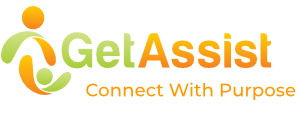Productivity Hacks that Will Result In A Novel

They say the hardest part about writing a novel is being disciplined enough to sit down at your desk each and every day and be productive enough to actually put pen to paper (or fingers to keyboard). Indeed, you cannot take a shortcut when planning out the plot or developing emotionally enthralling characters. But can you streamline the process and center your productivity to produce the most efficient and creative outcome? Of course you can. You just need these tips:
Catalog Your Behaviors
Some writers produce their best work after a refreshing morning walk and a steaming pot of coffee, while others are naturally more productive at 2 am with court TV buzzing in the background. Try something different every few days, and write in a journal—more writing, we know! but it’s worth it! Rate your levels of productivity, focus, creativity on a scale of 1-10 and also take note of how many pages you were able to knock out. Once you’ve gathered enough data and identified a pattern, use your best rituals as your ultimate productivity hack.
Try the Zero Draft
Many writers struggle with simply finishing the first draft of their novel. It can take months, years and even decades! This is because they’re aiming to get it right the first time, and their head isn’t in the game. Essentially, they’re playing to win the battle and not the war. A zero draft, also known as a fast draft, prevents the perfectionist in you from taking over by setting a limit of 30 days to write your manuscript. This piece should be categorized somewhere between an outline and first draft, because it will be extensively developed further during round two. The main purpose is to propel you to move forward at a faster pace.
Come up with an Elevator Pitch
This tip comes straight from the smashingly successful John Grisham. If you don’t know how to pitch your novel, and yourself, there’s a fat chance you’ll get your work published. Refining your elevator pitch will save you an immense amount of time in the long run as you attempt to convince people to read your book. After all, if no one reads it, what’s the point?
Remember, Relaxation can be Work
If chaining yourself to your desk isn’t producing much, take special note of this tip. Relaxation can be work, too. Hear us out—Your desk may be your designated work station, but it’s not always the place where your mind wants to work. Relaxing activities, like going for a bike ride or fishing at the lake can provide just the change of atmosphere your brain needs to recharge. While we don’t advise you bring your laptop into the bubble bath with you, but rather use this time to let your mind wander and plan out the missing pieces
Get Reinvigorated with a Class
Whatever your reason for wanting to write a novel—fame, respect, thought leadership, passion—all writers can appreciate a good book. If your writer’s block just won’t take a leave of absence, consider taking a course from one of the greats. James Patterson, author of 19 No. 1 New York Times Best Sellers, currently teaches a writing class through MasterClass. This course features videos, reading assignments and materials to help you get in the groove. There are lessons on everything from plot, to building a chapter to getting a movie deal.
Just as the tip above suggests, connecting with other writers and learning from one another can be the ultimate productivity hack for writing a novel. When we think of the great novelists, we immediately conjure up images of a grizzly bearded man sitting alone in a cabin, with only his thoughts to keep him company. But in reality, utilizing modern technology and relationships may be the key to success. GetAssist was created specifically to help people get more network out of their social network. Join today to meet writers just like you and share the productivity hacks you’ve personally found most useful!












